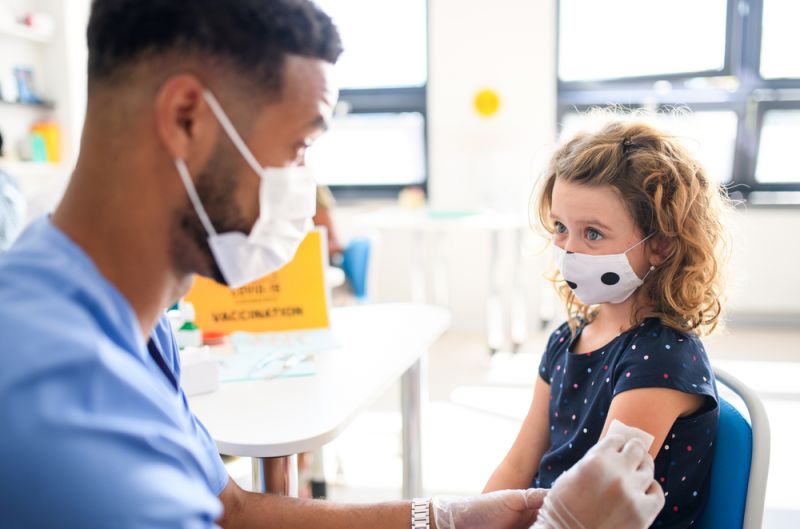Italy starts vaccinating kids against covid-19

Rome: Italy is to begin offering covid vaccines to children aged 5-11 from 16 December, with reservations already open in most regions around the country.
The moves comes two weeks after Italy’s medicines agency AIFA approved the Comirnaty vaccine developed by Pfizer and BioNTech, following the green light from EU medicines regulator EMA.
AIFA recommends that children get two doses of 10 micrograms, with three weeks in between vaccinations. Adult doses contain 30 micrograms.
The Lazio region around Rome is starting a day early than the rest of Italy with a “Vax Open Day” on 15 December, offering the vaccine to kids at 14 hubs including the Explora Children’s Museum in the capital.
From 16 December the vaccine for children will be available in 78 dedicated hubs across Lazio, said the region’s health councillor Alessio D’Amato, adding that 19,000 bookings were made in the first two hours after the online reservation system launched on Monday.
Italy’s health minister Roberto Speranza has said he will have his children vaccinated, calling on parents to “trust in our paediatricians”, reports news agency ANSA.
Speaking on Monday, the minister reiterated that children under 12 are exempt from the Green Pass, the certificate proving the holder has been vaccinated, tested negative or recovered from covid-19.
Speranza acknowledged that vaccinating children is a “delicate subject” and not one to be discussed “at the bar, on talk shows or on social media.”
According to a survey by Euromedia Research, published by Italian newspaper La Stampa, one in two parents agrees with vaccinating their children, 24 per cent of families have not decided what to do, with most resistance from parents recorded in the north east of the country.
In a statement on 25 November the EMA human medicines committee (CHMP) said that side effects from the vaccine in kids are “usually mild or moderate and improve within a few days of vaccination”, concluding that “the benefits of Comirnaty in children aged 5 to 11 outweigh the risks.”





